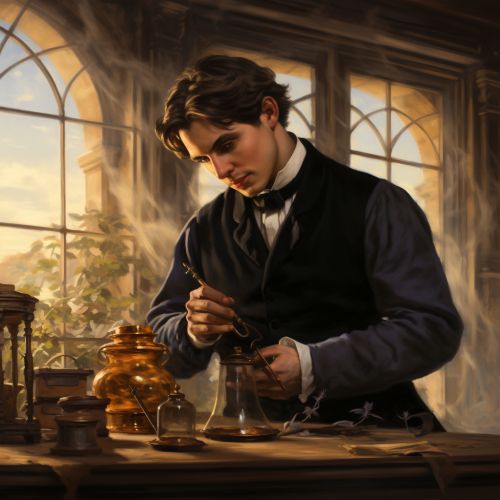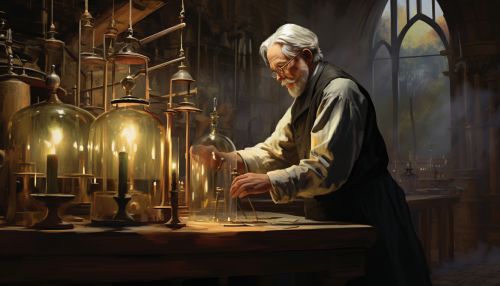James Prescott Joule
Early Life
James Prescott Joule was born on Christmas Eve, 1818, in Salford, Lancashire, England. He was the second of five children born to Benjamin Joule, a wealthy brewer, and his wife, Alice Prescott Joule. The Joule family was well-off, allowing James to receive a good education. He was initially educated at home by his mother before attending the private school of John Dalton, a renowned English chemist and physicist.
Education and Early Scientific Interest
Joule's interest in science was sparked at an early age. His father's brewery provided a perfect setting for his early experiments, especially in the field of thermodynamics. Joule was particularly influenced by the teachings of John Dalton, who had introduced him to the concepts of atomic theory and chemical combinations. His education was further supplemented by the works of scientists like Isaac Newton and Michael Faraday, which he studied extensively.


Joule's Law
In 1840, Joule made his first significant scientific discovery, now known as Joule's Law. This law states that the heat produced in a conductor by an electric current is proportional to the product of the resistance of the conductor, the square of the current, and the time for which it flows. This discovery was a major contribution to the field of electrochemistry and laid the groundwork for the first law of thermodynamics.
Mechanical Equivalent of Heat
Joule's most significant contribution to science was his determination of the mechanical equivalent of heat. In a series of experiments conducted in the 1840s, Joule demonstrated that heat and mechanical work are interchangeable. He showed that a specific amount of work done against friction resulted in a specific amount of heat, establishing that energy is conserved in processes involving heat and work. This principle is fundamental to the science of energy conversion and is a cornerstone of the conservation of energy principle.
Later Life and Legacy
Joule continued his scientific work throughout his life, making significant contributions to the fields of thermodynamics, electricity, and magnetism. He died in Sale, Greater Manchester, on 11 October 1889. His work has had a lasting impact on science, particularly in the field of physics, where the unit of energy, the joule, is named in his honor.


